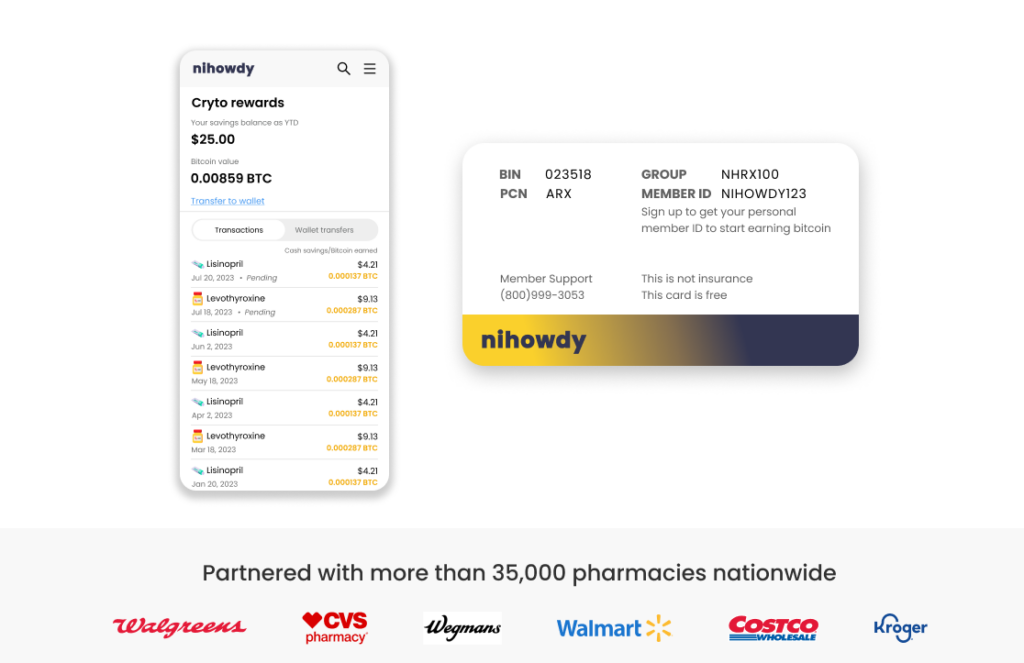Optimal Timing for Maximum Benefit: When to Take Lexapro for Anxiety and Depression


Determining when to take Lexapro can impact its performance in treating anxiety and depression. This article cuts through the complexity to tell you exactly when and how to take your medication for optimal results without overwhelming you with medical jargon. Expect clear instructions ahead.
Key Takeaways
Lexapro, commonly known as escitalopram, is a selective serotonin reuptake inhibitor (SSRI) prescribed to increase serotonin levels in the brain to treat depression and anxiety.
Proper Lexapro use involves taking it once daily at a consistent time, starting typically at 10 mg and potentially increasing to 20 mg, with the dosage tailored to the individual’s needs and conditions like liver disease.
It’s vital to take Lexapro for several months beyond initial symptom improvement to prevent relapse, taper off gradually when discontinuing to minimize withdrawal symptoms, and avoid interactions with other medications.
Understanding Lexapro: A Selective Serotonin Reuptake Inhibitor

Lexapro, known by its generic name escitalopram, is a medication within the selective serotonin reuptake inhibitor (SSRI) category. It’s prescribed for treating both depression and anxiety by enhancing serotonin levels in the brain. Serotonin acts as a neurotransmitter that aids in signal transmission within the brain, and low levels of this chemical can contribute to feelings of depression and anxiety.
The mechanism by which Lexapro operates involves preventing neurons from reabsorbing serotonin back into themselves, resulting in increased availability of this mood-regulating neurotransmitter within the brain space. By explicitly focusing on serotonin management without significantly affecting other transmitters, Lexapro distinguishes itself as a ‘selective’ SSRI, an attribute common to all drugs classified under selective serotonin reuptake inhibitors.
Ideal Dosage and Strength

If you’re pondering the proper dose of Lexapro, it’s worth noting that the usual dosage range spans from 5mg to 20mg. Typically, for conditions such as major depressive disorder and generalized anxiety disorder, doctors commence treatment with a daily dose of 10 mg and may augment this amount up to a maximum threshold of 20 mg if deemed necessary.
Yet, bear in mind that dosages can differ among individuals. Doctors frequently fine-tune the prescribed dosage over time to determine the lowest effective dose tailored to an individual. For example, if you have liver disease, you might need to alter your Lexapro prescription, with consideration given to capping at an advised peak of just 10 mg per day.
Administering Lexapro: How to Take It

Proceeding with the correct dose and concentration, it’s essential to adhere to a consistent schedule when taking Lexapro. Consume this medication once daily at the same time, as directed by your doctor. It is up to you to take Lexapro with food or on an empty stomach. Just be sure that your decision aligns with recommendations from your healthcare professional.
In situations where a liquid form of Lexapro is prescribed, here are some guidelines for precise dosing.
Vigorously shake the bottle before each use.
Utilize a measurement device marked clearly to guarantee consumption of the intended dosage.
If you have any questions or need comprehensive directions regarding usage, refer to the Medication Guide provided or consult directly with your physician or pharmacist for assistance.
Duration of Treatment: How Long to Take Lexapro
Understanding the duration required for Lexapro to be effective is crucial when undergoing treatment. Symptoms may begin to alleviate after several weeks on this medication, yet it does not signal that one should cease taking it. It’s commonly observed that individuals must persist with their Lexapro regimen for several months following the initial signs of improvement to avoid recurring symptoms. Thus, even after experiencing relief from distressing symptoms, extending the use of Lexapro for several months is advisable to consolidate the benefits achieved through treatment.
The decision-making process regarding whether or not one ought to discontinue using Lexapro entails careful evaluation of ongoing symptom intensity and frequency, assessment of how well an individual responds precisely to this drug therapy, and consideration of any potential side effects encountered. As general practice suggests, once patients have successfully maintained a state free from symptoms for at least half a year, they may start gradually weaning off from Lexapro under medical guidance.
Missed Doses: What to Do If You Forget
As humans, it’s not uncommon for us to forget a dose now and then. If you fail to take your Lexapro, if it’s remembered shortly after its scheduled time, take that missed dose immediately. On the other hand, if the next dose is almost due according to your regular dosing regimen, omit the forgotten one.
Significantly, don’t compensate by taking an extra dose of Lexapro. Doubling up can be dangerous. To help ensure daily consistency with your medication routine, consider establishing a reminder or consistently taking your medication at identical times every day.
Safely Discontinuing Lexapro
Sometimes, the choice to discontinue Lexapro might come from either you or your physician. But what is the safe method of doing so? First and most importantly, never stop taking Lexapro without seeking medical advice. Make sure you’re under a doctor’s care throughout the stopping process for safety purposes and to tackle any arising withdrawal complications.
It is recommended that when stopping Lexapro use, one should gradually reduce their dosage over several weeks or longer to minimize or avoid severe withdrawal symptoms. The cessation can give rise to both emotionally and physically uncomfortable symptoms, thus emphasizing the importance of a carefully monitored cessation strategy.
For those phasing out their usage of Lexapro, support networks offer invaluable camaraderie as well as access to shared experiences on handling various aspects of withdrawal effects.
Overdose Concerns and Urgent Advice
While Lexapro is a crucial aid for many, it’s imperative to recognize the signs of overdose. These can manifest as headaches, drowsiness, fever, convulsions, heart rate fluctuations, comas, insomnia, nausea, vomiting, and disorientation. In extreme scenarios, one might experience seizures, hallucinations, cardiovascular issues, suicidal ideas, and kidney failure.
Should symptoms like convulsions, vomiting, or dizziness arise, prompt medical assistance is essential due to the seriousness of an overdose. Symptoms may worsen when combined with alcohol, other drugs, or specific medications. Emergency care should focus on:
Stabilizing vital parameters
Maintaining respiratory clarity
Performing gastric lavage
Offering symptomatic support
It’s important to note that tolerance levels differ by individual. Additionally, in isolated instances, escitalopram can trigger severe allergic reactions such as anaphylaxis, which demands an urgent emergency medical response.
Potential Interactions with Other Medications
If you take other medications, it’s essential to be aware of potential interactions with Lexapro. Medicines like the antidepressant venlafaxine and the blood thinner apixaban may have interactions when used alongside Lexapro. Drugs that are metabolized by the CYP2D6 enzyme, including desipramine and metoprolol, could see elevated concentrations in your body if taken concurrently with Lexapro.
These interactions can increase the likelihood of experiencing adverse effects from medicines affected by simultaneous use with Lexapro. Consequently, consulting a healthcare provider is essential for addressing possible drug-drug interactions involving Lexapro and any other medications you might be using. Prioritizing your health and safety should invariably come first.
Common Side Effects and Serious Risks

Lexapro, like any medication prescribed for anxiety, comes with a set of potential side effects and associated risks. These adverse effects can range from nausea and persistent headaches to dry mouth, increased sweating, sleep disturbances such as insomnia or drowsiness, and general fatigue. Additional possible side effects may include weight gain along with changes in menstrual patterns or sexual dysfunction, which could manifest as painful erections, challenges achieving orgasms, or diminished libido. It is crucial to be cognizant of both the symptoms of anxiety you’re trying to manage and these potential reactions when using Lexapro or similar medications.
Beyond more common side effects lies the threat of severe complications, including Serotonin Syndrome—a grave condition that demands immediate medical intervention should it occur due to an overdose. The risk for this syndrome escalates if supplements known for raising serotonin levels—like tryptophan or St John’s Wort—are taken concurrently with Lexapro. So does combining it with MAO inhibitors. To navigate safely through concerns about adverse symptoms and severe health threats posed by medication use, such as this one targeting serotonin activity in your system explicitly related but not limited exclusively to treatment plans involving Lexapro itself—you should maintain open communication lines between yourself & your healthcare provider at all times regarding anything about it whatsoever.
Off-Label Uses for Lexapro
Lexapro, commonly utilized for managing depression and generalized anxiety disorder, has applications extending beyond its primary uses. Healthcare providers may prescribe Lexapro off-label to address a variety of other conditions, including:
Post-traumatic stress disorder (PTSD)
Panic attacks
Obsessive-compulsive disorder (OCD)
Social anxiety disorders
Different forms of eating disorders
Premenstrual dysphoric disorder (PMDD)
Evidence from research indicates that administering escitalopram at elevated doses can alleviate symptoms associated with PTSD and panic attacks in specific individuals. Notably, the adherence rate was high among those undergoing treatment for PTSD using escitalopram. Any use of escitalopram outside its approved indications should be carefully discussed with and overseen by a healthcare provider.
NiHowdy Prescription Discount Card Benefits
NiHowdy’s prescription discount card is designed to lessen the financial burden of maintaining mental health by offering savings on medication expenses. You can easily acquire this card through an online platform or by scanning a QR code at any pharmacy that accepts it, ensuring accessibility and convenience for users.
Leveraging NiHowdy’s prescription discount card reduces your spending on prescriptions and rewards you with up to 3% back in Bitcoin deposited into your Coinbase wallet. Employers can enhance their employee benefits package with NiHowdy’s card without incurring extra costs. Embrace these perks and begin saving immediately.
Support Resources and Links
Navigating the complexities of mental health, particularly when it comes to mental illness in young adults, can be daunting. Take heart, knowing a community and resources are ready to support you. The NiHowdy platform stands out by aiding individuals in comparing medication prices via an interactive map feature that guides them toward the most economical options for purchasing their prescriptions.
The Substance Abuse and Mental Health Services Administration (SAMHSA) has created a user-friendly online index featuring certified mental health providers if you’re seeking specialized care professionals. You may access this valuable tool on their website or get assistance by dialing 1-800-662-HELP (4357). Those with health insurance have the additional benefit of finding approved local mental healthcare services through directories provided by their insurance companies.
In cases where someone might be struggling with both mental illnesses as well as substance use challenges, SAMHSA extends its support through its National Helpline — available around the clock at no cost. By calling this helpline, one can receive private recommendations for nearby treatment facilities, supportive groups, and vital community-based organizations dedicated to assisting those in need.
Summary
We’ve covered a lot of ground in this blog post, from understanding what Lexapro is and how it works to its dosage and how to administer it, the duration of treatment, what to do when a dose is missed, how to discontinue it safely, overdose concerns, potential interactions with other medications, typical side effects, and off-label uses. We also introduced the benefits of Nihowdy’s prescription discount card and provided a list of support resources and links.
Perhaps the most important takeaway is that managing depression and anxiety is possible, and you’re not alone in this fight. Medications like Lexapro can be beneficial, but remember, it’s essential to consult with a healthcare provider before starting, changing, or stopping any treatment plan. Take care of your mental health – you deserve it!
Frequently Asked Questions
What is Lexapro?
Escitalopram, which is marketed under the name Lexapro, functions as a medication designed to combat depression and anxiety disorders. It achieves this by elevating the levels of serotonin within the brain, which in turn can enhance mood and alleviate symptoms related to anxiety.
What is the typical dosage for Lexapro?
The usual range for Lexapro dosage is 5mg to 20mg, though it may be adjusted according to your individual needs. It is crucial to ensure you adhere to your physician’s prescribed dosage.
How long should I take Lexapro?
It is essential to persist with the Lexapro regimen for several months past the initial signs of symptom improvement, as this can help prevent any recurrence. Heeding your physician’s advice regarding how long you should continue treatment is crucial.
What should I do if I miss a dose of Lexapro?
Should you forget to take a dose of Lexapro, administer it promptly upon recollection. If the time is nearing for your subsequent dose, forego the one missed and proceed as usual with your dosing timetable.
Are there any off-label uses for Lexapro?
Indeed, Lexapro may be prescribed for off-label use to treat various conditions, including OCD, eating disorders, panic disorder, PTSD, social phobia, and PMDD. It is essential to have a conversation with a healthcare professional regarding the off-label applications of this medication.


